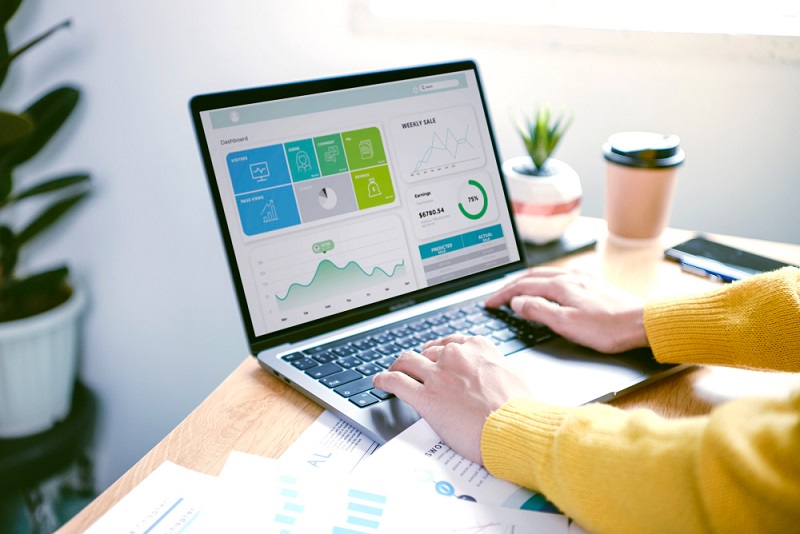In the ever-evolving world of digital marketing, Search Engine Optimization (SEO) remains a cornerstone for online success. Among the numerous SEO strategies available, On-Page Optimization stands out for its significant impact on website visibility and organic traffic. This technique focuses on optimizing individual web pages to improve their search engine ranking and attract quality traffic. Central to this is the strategic use of identified target keywords throughout your web pages.
What is On-Page Optimization?
On-page optimization, also referred to as on-page SEO, is a practice that involves optimizing web page content for search engines and users. It includes measures that can be taken directly within the website to enhance its position in search rankings. This includes things like keyword optimization, meta tags, headers, URL structure, and more.
The Importance of Target Keywords
The fundamental element of on-page optimization is keyword usage. The goal is to incorporate your identified target keywords into various sections of your webpage in a natural, non-disruptive manner. You must find a balance between making content appealing and understandable for users while ensuring it’s also attractive to search engine algorithms.
Steps to Conduct On-Page Optimization
Let’s break down the steps of using your target keywords effectively for on-page optimization:
1. Page Title Optimization
The title of your page is one of the first things both users and search engines see. It’s crucial to include your target keyword as close to the beginning of the title as possible. This not only emphasizes its relevance to the search engines but also aligns with user search intent.
2. Meta Description Optimization
A meta description is a brief summary of a web page that appears in search engine results. It serves as a first impression, enticing users to click on your page. Incorporating your target keyword in the meta description increases the page’s relevance to the search query and can significantly improve click-through rates.
3. Header Optimization
Headers (H1, H2, H3, etc.) play a crucial role in on-page SEO. They provide structure and context for your content. Including keywords in your headers, especially the H1 and H2, can indicate to search engines the topic of your content.
4. Content Optimization
Content is the heart of your web page. Including your target keywords naturally within your content can increase its visibility on search engine results pages (SERPs). However, avoid “keyword stuffing,” as search engines may perceive this as a spammy tactic, which can harm your rankings. Instead, aim for a balanced and naturally occurring keyword density.
5. Image Alt Text Optimization
Search engines cannot “see” images the way humans can, but they can read the alt text. By including keywords in your image’s alt text, you can help search engines understand the content of the image, increasing the visibility of your page.
6. URL Optimization
URLs that contain target keywords can provide both users and search engines with more information about the page’s content, improving your website’s navigability.
Conclusion
Effective on-page optimization is an art. It requires a careful balance of strategic keyword placement, engaging content, and user-focused design. By optimizing each element of your page—title, meta description, headers, content, images, and URL—you can significantly improve your website’s search engine rankings, attract more organic traffic, and enhance user experience. However, remember that while keywords are important, they must always be used in a context that provides value to your users. In the world of SEO, content remains king. Always prioritize the quality and relevancy of your content above all else.
FAQ – Frequently Asked Questions about On-Page Optimization
What is on-page optimization in SEO?
On-page optimization, also known as on-page SEO, is a strategy that involves optimizing individual web pages to improve their search engine ranking and drive more quality traffic.
How can I optimize my website’s page title?
To optimize your page title, include your target keyword as close to the beginning as possible. This highlights its relevance to both users and search engines.
What role does meta description play in on-page optimization?
Meta descriptions provide a brief summary of a web page in search engine results. Including your target keyword in the meta description can improve click-through rates by aligning with user search intent.
How can I optimize my content using target keywords?
Incorporate target keywords naturally within your content to increase its visibility on search engine results pages. However, avoid keyword stuffing as it can negatively impact your rankings.
Why is image alt text important in SEO?
Search engines can’t “see” images, but they can read alt text. Including keywords in your image’s alt text helps search engines understand the content of the image, improving page visibility.
How does URL optimization improve on-page SEO?
URLs containing target keywords provide more information about the page’s content to users and search engines. This can improve your website’s navigability and search engine ranking.
When you’re working on your website’s SEO strategy, it’s crucial not to overlook the power of on-page optimization. This form of SEO focuses on optimizing individual web pages, making them more visible and attractive to search engines. The key is to strategically use your target keywords in the page title, meta description, headers, and throughout the content.
Another critical aspect of on-page optimization involves the strategic use of meta tags. Meta tags provide information about your web page to search engines and can significantly influence your page’s visibility. It’s not only about using the right keywords but also about placing them correctly within your tags.
While the content optimization process requires time and effort, it’s worth it. High-quality, keyword-optimized content can significantly improve your search engine rankings. But remember, keyword optimization should never compromise the quality of your content. Always strive to deliver valuable and informative content to your audience.






